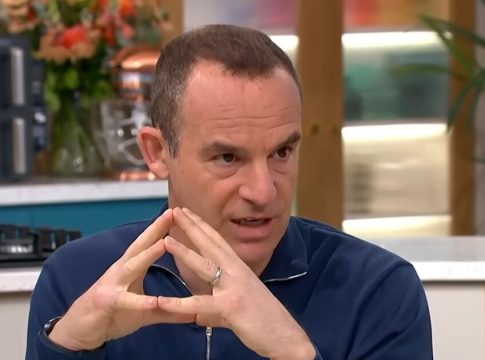Understanding Savings Taxation: What You Need to Know
Personal finance expert Martin Lewis recently clarified important information regarding taxation on savings, addressing common misconceptions many people have. If you have any savings, it’s crucial to understand how and when savings interest might affect your taxes.
What Gets Taxed?
First things first: it’s not your savings that are taxed, but the interest you earn on those savings. As Mr. Lewis highlighted, the confusion often lies in the difference between “taxable” and “taxed.”
- Taxable Income: This refers to all earnings that could potentially be taxed. This includes income from all sources—whether from your job or interest on your savings.
- Tax-Free Allowance: Currently, you can earn up to £12,570 each year without owing any tax. This is known as your personal allowance.
Savings Allowance: Know Your Limits
Let’s dig deeper into how savings interest plays into this:
-
As a basic-rate taxpayer, you can earn up to £1,000 in interest tax-free. So, if your savings account has a high interest rate, you can comfortably keep around £20,000 in there without worrying about tax—as long as your interest doesn’t exceed £1,000.
- For those classified as higher-rate taxpayers, the interest you can earn tax-free drops to £500. This means you would need to limit your savings to approximately £10,000 in a 5% interest account to avoid paying tax.
The Little-Known Starting Savings Allowance
Lewis pointed out a valuable yet overlooked benefit: the Starting Savings Allowance. This allowance enables individuals with lower incomes to earn more tax-free interest.
- If your total earnings are below £12,570, you can earn an additional £5,000 in savings interest without the taxman knocking on your door.
- However, for every pound you earn above £12,570, your allowance shrinks by that same amount.
For example, if you earn £13,570, your tax-free savings interest limit drops to £4,000.
Maximum Tax-Free Earnings
It gets even better for those who rely entirely on savings interest. If all your income comes from that source, combining the allowances means you could potentially earn up to £18,570 tax-free.
- Personal Allowance: £12,570
- Starting Savings Allowance: £5,000
- Basic Savings Allowance: £1,000
Additionally, you can invest in an ISA (Individual Savings Account), allowing you to save up to £20,000 a year tax-free, along with £50,000 in Premium Bonds.
Clearing Up Double Taxation Confusion
Many people worry about double taxation on their savings. According to Mr. Lewis, this is a misunderstanding. You’re not taxed twice: you pay taxes on your income and any interest generated from your savings independently.
Practical Takeaway
Understanding the landscape of savings taxes can save you money. Here’s what to remember:
- Keep track of your interest earnings to stay within tax-free limits.
- Utilize your ISAs and Premium Bonds for additional tax-free savings options.
- If you’re a low earner, don’t overlook the Starting Savings Allowance; it can significantly boost your tax-free earnings.
By being informed and strategic about your savings, you can maximize your financial growth without giving more to the taxman than necessary.

Writes about personal finance, side hustles, gadgets, and tech innovation.
Bio: Priya specializes in making complex financial and tech topics easy to digest, with experience in fintech and consumer reviews.

